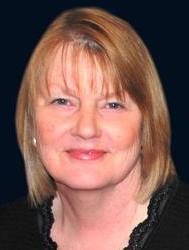Patty Craig: A Slice of Time
I heard someone say, “Don’t complain because you have to get up early every morning. The time may come when you can’t get up – period.” I believe we want to be as healthy as we can. Sometimes to do that, a change of habit is needed. I read several suggestions for a healthier life.
-About one-third of Americans skip breakfast. A study found that those who don’t eat breakfast tended to have lower levels of folate, calcium, iron, and vitamins A, B, and D. They also ate more snacks high in sugar, carbs, and fat. Sometimes I skip breakfast, but more often than not, I don’t miss a meal.
-Do you wear sunscreen when you are working in the yard or gardening? If you are like 59% of the population – including me at times, you don’t. However, we are putting ourselves at risk for skin cancer, even in cooler or cloudy weather. The recommended sun protection is an SPF 30 or higher. Preventing sun-damage is pretty important.
-We know exercise is important, but it only happens when we schedule some of our time to make it happen. Generally, adults need 150 minutes of moderate aerobic activity or 75 minutes of vigorous aerobic activity per week. I count yard work and walking toward moderate exercise minutes.
-Water intake is also a necessity. About 15.5 cups of fluids a day for men and about 11.5 cups of fluids a day for women is recommended. About 20% of daily fluid intake usually comes from food, and the rest comes from drinks. What counts toward fluid intake? Non-alcoholic fluids, including tea, coffee, and fruit juice, count toward fluid intake. Also, sparkling soft drinks, including reduced, no-sugar, and no-calorie options, contain between 85% to 99% water, so they can count toward daily fluid intake. Please note that factors such as exercise, environment, health, and pregnancy may result in the need to modify daily fluid intake.
-Food choices are important. The healthline website suggests that most daily calories come from fresh fruits, fresh vegetables, whole grains, legumes, nuts, and lean proteins. Most of us occasionally enjoy “empty-calorie” foods, such as cakes, processed meats, sodas, chips, and ice cream. These foods – and similar foods – are empty-calorie foods because they contain little nutrition. The number of calories needed depends on age, gender, and activity level. The human body needs nutrients to stay healthy, and making healthy food choices is critical.
-How much time do we need to play? Studies show that time off work can make a person more productive. The time taken off from work is important to avoid burnout and improve mental health. A vacation or a staycation both are helpful to a person’s well-being. Interestingly, 64% of people reported that they are “vacation-deprived.” An occasional change of pace refreshes the mind and one’s emotional balance. Taking shorter breaks from one’s work schedule throughout the year might be more effective than taking only one long break.
-We know that sleep time is crucial, yet some people have trouble falling asleep. Some say that blue light – mostly from screens – may stimulate the brain, making it think the day isn’t over. Now, a blue-blocking light bulb could be used at the bedside, allowing one to read without the stimulating blue light. Also, blue light glasses (clear-lens glasses that block 30% of blue light; usually sold near sunglasses, etc.) might help a bit. Many say cutting out caffeine several hours before sleeping is helpful. If reducing stimulants doesn’t help with getting necessary sleep, it may be time to ask for medical advice. Sleep deprivation is not healthy.
I read that some poor health in our country can be attributed to heavy meals and light work. Who knows? I believe good health is a blessing. And, we have to make healthy choices.



























